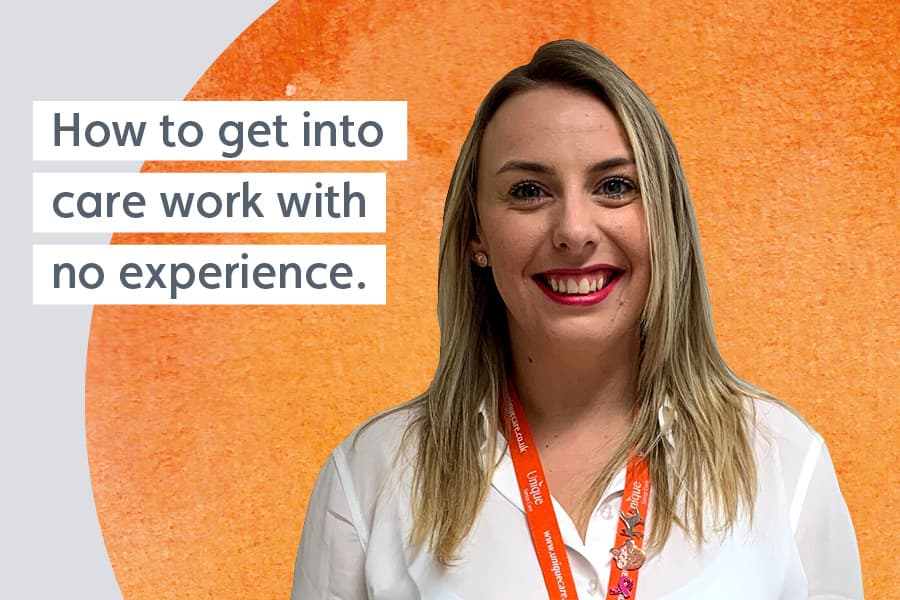Caring for someone living with dementia comes with many ups and downs. It’s natural to feel overwhelmed at times, as everyday moments can suddenly become confusing or distressing for your loved one—and that can be tough for you, too. Here, we’re looking at some of the common experiences families go through, with caring and practical advice from Pippa, one of our trainers at Unique Senior Care. Pippa's gentle approach and expertise are here to help you navigate these moments with more ease and understanding. We hope these insights help you feel more equipped, supported, and bring some moments of comfort as you walk alongside your loved one on this journey with dementia.
Does Mum Remember Who I Am?
It’s heartbreaking when someone close to you doesn’t seem to know who you are anymore. It’s one of the toughest parts of dementia—when the person you love so dearly seems to slip away. But even if they don’t recognise your face or remember your name, there’s still a part of them that knows you.
They can still feel the warmth of your presence, the safety you bring, and the love you share. What matters most is how you make them feel, and that connection is still there, even if it looks different now. Here’s how you can help both your loved one and yourself navigate this difficult journey.


Mum Is Getting Confused Taking Her Medication—What Can I Do?
When your loved one struggles with their medication, it can be really worrying. Watching them get confused about which pills to take, or whether they've taken them at all, can leave you feeling anxious and helpless.
The key here is to simplify things as much as possible. You can consider using tools like blister packs, which divide up doses by day and time, making it easier for them to follow. Keeping everything in a consistent routine, and having a clear, visual system, can really help them feel more in control and reduce your own stress as well. Here are some practical steps that can help make medication management smoother.


Dad Can’t Concentrate on His Favourite Activities—How Can I Help?
It’s tough when someone close to you, who used to be able to sit for hours working on their favourite hobbies, can’t focus anymore. You might see them start something, then get frustrated, or give up entirely after a few minutes.
The key here is to adapt the activity so it matches their current ability. That might mean switching to simpler puzzles or shorter books, or breaking activities into smaller, manageable parts.
The goal isn’t necessarily to get them back to how things used to be, but to help them still find joy in what they love, even if it looks a bit different now. Here’s how you can help them enjoy those activities again, even if it’s just for a little while.


Dad Struggles with Making Basic Decisions—What Should I Do?
If your loved one is struggling to make even basic decisions, like what to wear or what to eat, it’s because their brain may no longer process multiple options effectively.
When faced with too many choices, it can become confusing, stressful, and even exhausting for them. It's similar to experiencing decision fatigue, where even simple decisions can feel like daunting tasks. This sense of being overwhelmed can lead to frustration or anxiety, which makes it even harder for them to make a choice.
The trick here is to simplify things as much as possible. Instead of presenting lots of choices, try narrowing it down to just two options—"Would you like the blue jumper or the red one?" This makes it easier for them to feel in control without feeling overwhelmed, reducing their stress and helping them feel more comfortable.


How Can I Help Mum When She Forgets Things Like Appointments or Where Things Are?
It’s often the little things that can be the most frustrating—for both you and your loved one. They might forget where they put the remote, or what time their doctor’s appointment is, and it can make them feel lost or even embarrassed.
One way to help them stay more independent is by using visual reminders—things like Post-it notes on drawers or a big calendar on the wall for appointments. These visual cues can help them find what they need without having to ask, which helps them feel more in control. Encouraging them to write things down themselves, like upcoming appointments, can also make a big difference, as seeing their own handwriting often helps trigger the memory.


Dad Wants to Go to Work Even Though He Retired Years Ago—How Should I Respond?
When someone you care for wakes up, puts on their suit, and says they’re heading to work, it can be really hard to know what to do. Telling them that they’re retired often leads to upset and confusion, because in their mind, they still need to go.
Instead of correcting them, try gently going along with it and then redirecting—maybe tell them the office is closed today, but you have something else planned, like a trip to the garden centre or a walk in the park. This way, you’re validating their feelings without causing distress, and you’re helping them transition to a different activity that feels meaningful.]


Mum Keeps Putting Things Away in Odd Places—How Do I Handle This?
When you find the biscuits in the wardrobe or their jewellery in the fridge, it can be baffling and even a bit frustrating. And when someone with dementia insists someone’s stolen them, it can make things even harder.
Instead of trying to correct them or convince them otherwise, it’s often more helpful to reassure them. You could say something like, "Oh, I borrowed that for a moment, but I’ll put it back now." Little reassurances like this help ease their anxiety and prevent further confusion.
It’s not about being perfectly logical—sometimes it’s about doing what keeps them calm and comfortable.


Dad Believes There Are Strangers in the House—What Should I Do?
When your loved one is convinced there are strangers in the house, telling them there’s no one there usually doesn’t help—it just makes them feel like you’re not listening or understanding their fear. Instead, try to reassure them in a way that feels real to them.
Walk with them around the house, check the doors, and show them that everything is secure. Let them see for themselves that the house is safe. By joining them in their reality and addressing their concerns directly, you’re helping them feel safe and calm, and that’s what really matters.


Mum Thinks Dad Is Still Alive—How Should I Respond?
When your loved one asks where their partner is, believing they’re still alive, it’s one of the most heartbreaking situations you can face. Correcting them and reminding them that their partner has passed away often leads to fresh grief and pain, as though they’re hearing it for the first time all over again.
Instead, try to meet them where they are. You could say, "They’re at work right now" or "They’re just out running some errands." These gentle responses help to reassure them and reduce their anxiety without causing additional distress.
It’s about keeping them calm and comfortable in that moment, even if it means stepping into their reality for a while.


Finding Comfort in the Journey
Dementia can be overwhelming—not just for the person experiencing it, but for everyone who loves them. Remember, there’s no perfect way to respond, and what works one day might not work the next. The most important thing is that your loved one feels safe, secure, and loved. You’re doing an amazing job, and we hope these tips help make the journey just a little bit easier.
If you need more support, our team is always here to help. Feel free to explore our Learning Centre for more advice and guidance, or reach out to us directly—you don’t have to do this alone.
Pippa joined Unique in January 2024 as an Induction Trainer and now also leads on our dementia and end-of-life training. With a background in delivering training in various roles, she moved into care four years ago and quickly realised it was where she was meant to be. Combining her love of teaching with the meaningful work of care has become her ideal job.
Pippa is passionate about helping people grow, especially those who may start out feeling unsure. Seeing new Caregivers gain confidence and flourish is what makes the role so rewarding. Her approach is flexible and thoughtful – recognising that, just like our clients, every Caregiver learns in their own way.



